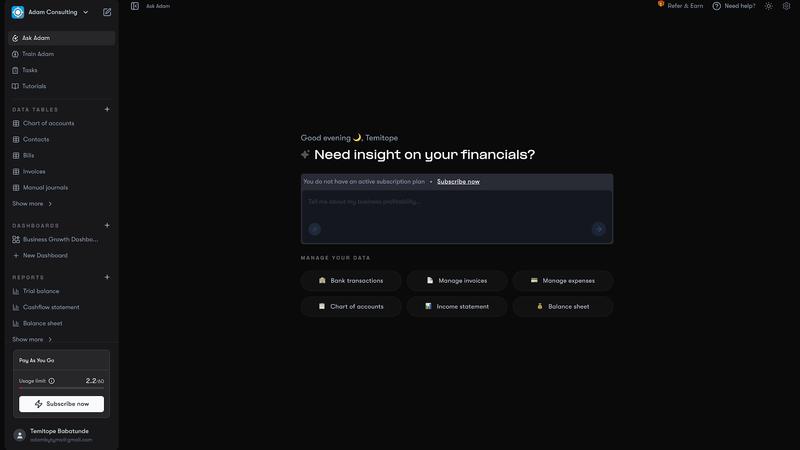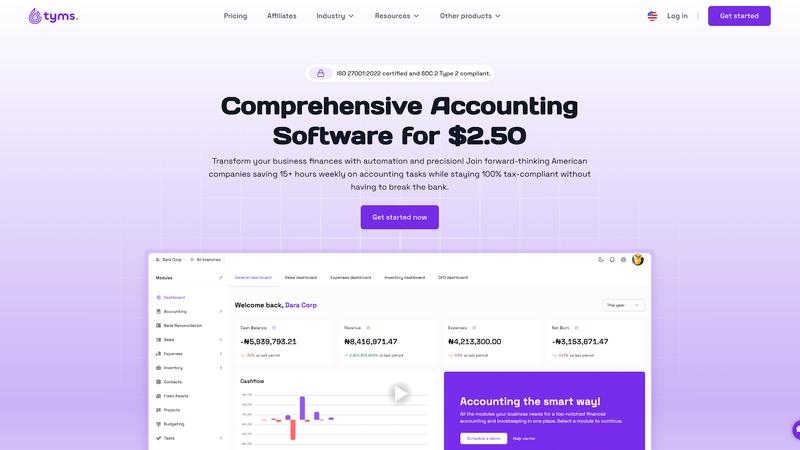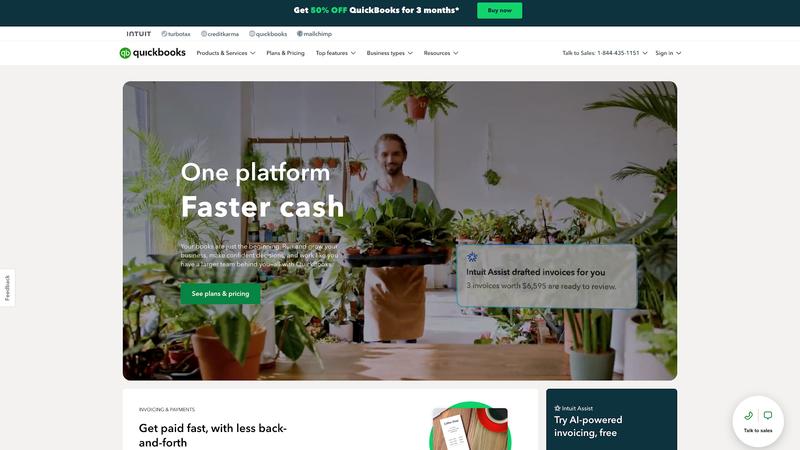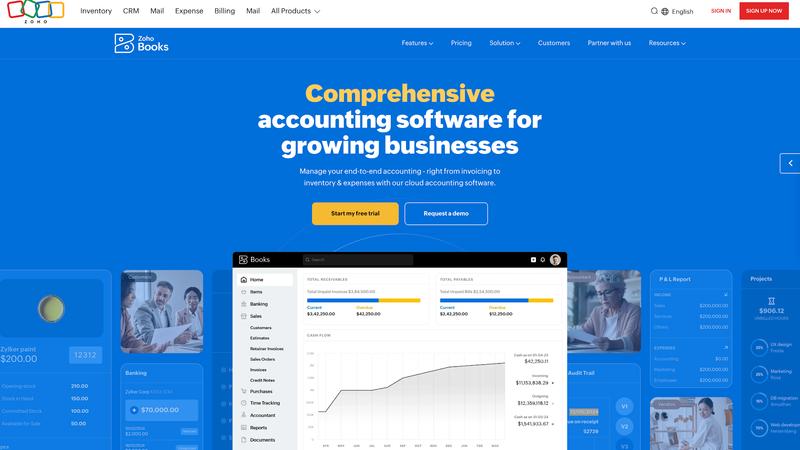The Best AI Accounting Software for Real Estate Developers & Property Managers in 2025
Real estate developers lose time and money on manual bookkeeping. The best AI accounting software in 2025 helps cut errors, save hours, and boost profits.
Temitope Ayegbusi

If you're a real estate developer or property manager, you already know how chaotic the financial side of your business can get. Between juggling multiple properties, paying contractors, managing commissions, and keeping investors updated, bookkeeping becomes a full-time job.
For years, developers have relied on Excel spreadsheets, manual bookkeeping, or generic accounting tools like QuickBooks. But these often fall short; they're either too manual, generic, or complicated to adapt to real estate needs.
In 2025, AI accounting software is making bookkeeping faster, simpler, and more accurate. Instead of spending hours categorising expenses and building financial statements, you can now rely on AI tools that automate the entire process.
In this article, we'll explore why real estate developers need industry-specific accounting tools, whether QuickBooks really fits, and the best AI accounting software options for them and their property managers.
Why Real Estate Developers Need Specialized AI Accounting Software
Real estate accounting isn't like standard small business bookkeeping. Developers and property managers face unique challenges:
- Multiple cash flows: You're simultaneously handling income and expenses for numerous properties or projects.
- Contractor payments & commissions: Tracking payments across vendors, contractors, and agents can get messy quickly.
- High-stakes reporting: Lenders, investors, and tax authorities expect accurate profit & loss statements and balance sheets.
- Expense tracking: From materials and renovations to utilities and legal fees, categorizing expenses correctly is critical.
Generic tools often can't handle this level of complexity. A simple mistake, like misclassifying expenses, can lead to overpaying taxes, losing deductions, or presenting unreliable reports to investors.
That's why many real estate businesses are now turning to AI-powered accounting software, designed to reduce errors, automate categorization, and generate real-time reports.
QuickBooks for Real Estate Developers — Does It Fit?
QuickBooks is often the first stop for small businesses exploring accounting software. It's widely used because it allows more accounting processes and offers strong reporting tools.
But for real estate developers, QuickBooks has limitations:
- Complex setup: Customising QuickBooks for real estate requires significant setup and ongoing management.
- Manual input: Expenses, commissions, and project costs must be categorised manually.
- Not AI-native: While powerful, it wasn't built to automate real estate workflows.
For small-to-mid developers and property managers, QuickBooks may feel overwhelming, time-consuming, and not worth the learning curve. That's why many are now searching for QuickBooks alternatives for small business accounting — tools that are easier, smarter, and built for automation.
The Best AI Accounting Software for Real Estate Developers in 2025
Here are the top accounting software options real estate professionals should consider:
1. Adam by Tyms (AI-Native Accounting Software)

Adam by Tyms is designed from the ground up as an AI-first bookkeeping app for small businesses — making it an excellent fit for developers and property managers. Here is what Adam by Tyms can do:
- Automatic Expense Tracking: You can connect your bank, email, or even WhatsApp to Adam by tyms, and Adam categorises every transaction through those channels instantly (contractor fees, commissions, maintenance, utilities).
- Real-Time Reports: Generate profit and loss statements, balance sheets, and cash flow reports in one click — no spreadsheets or templates required. You also have the opportunity to train Adam regularly to understand your transactions, so you can peacefully focus on running the business without having issues understanding your business finance.
- Built-In Accuracy: AI eliminates duplicate or missing entries and keeps records consistent month after month.
- Saves Time & Money: No need to hire expensive accountants for everyday bookkeeping.
With Adam, real estate professionals can spend less time on accounting work and more time closing deals and managing projects.
2. Tyms (Comprehensive Business Accounting Platform)

Beyond Adam, Tyms itself is a full-scale accounting and financial management platform trusted by thousands of small and growing businesses.
- All-in-One Solution: From bookkeeping to invoicing, payroll, and reporting, Tyms covers the full spectrum of business finance.
- Scalable for Growth: Perfect for developers who manage multiple projects or plan to expand into property portfolios.
- User-Friendly Interface: Unlike traditional accounting tools, Tyms is designed with non-accountants in mind, making it easy to onboard teams.
If you’re looking for an easy accounting software for small business that grows with you, Tyms delivers a modern, all-in-one approach.
3. QuickBooks (Industry Standard)

QuickBooks remains a reliable choice if you want a well-known platform with integrations and accountant support.
However, expect a steeper learning curve and more manual management compared to AI-driven tools.
4. Zoho Books / FreshBooks (Lightweight Alternatives)

These are good options for freelancers or very small property managers.
They’re affordable but lack the AI automation and deep categorization features that real estate developers need.
Key Features Real Estate Developers Should Look For
When choosing the right tool, focus on these must-have features:
- Automated expense categorization (contractors, commissions, materials).
- Bank and credit card sync for real-time tracking.
- AI-powered error detection to eliminate duplicates or omissions.
- Simple financial report generation — especially profit & loss statements for small businesses.
- Scalability to grow from a single property to multiple projects.
Why AI Accounting Software Is the Future for Real Estate Businesses
AI isn’t just a buzzword. For real estate professionals, it means:
- 100+ hours saved per year on manual bookkeeping.
- Fewer errors, ensuring audit-ready financials.
- Smarter decisions with real-time expense and cash flow insights.
- Investor-ready reports that inspire trust and transparency.
Manual bookkeeping and generic tools are holding developers back. In 2025, AI-native accounting software like Adam by Tyms is the game-changer for real estate professionals who want to simplify their finances and focus on growth.
Real estate developers and property managers can’t afford sloppy books.
Between investors, lenders, and tax authorities, financial accuracy is non-negotiable. While QuickBooks and other accounting software are still widely used, it’s not built for the fast-paced, expense-heavy world of real estate.
The future lies in AI-powered alternatives that save time, reduce errors, and generate reports in seconds.
If you’ve been searching for QuickBooks alternatives or wondering what is the best AI accounting software for real estate developers, Adam by Tyms offers a smart, affordable, and intuitive solution built for small businesses like yours. Get Started with Adam by Tyms